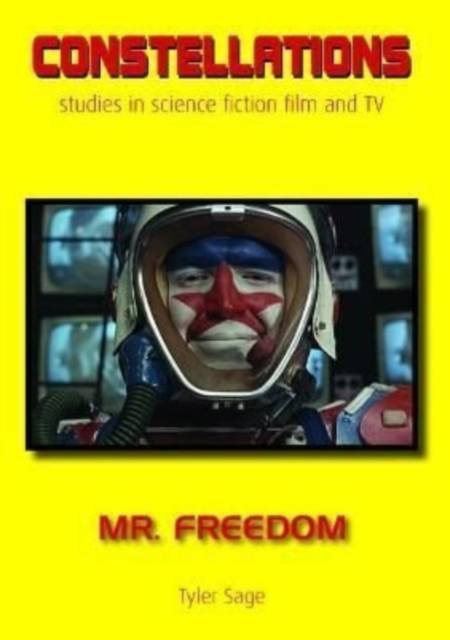
- Retrait gratuit dans votre magasin Club
- 7.000.000 titres dans notre catalogue
- Payer en toute sécurité
- Toujours un magasin près de chez vous
- Retrait gratuit dans votre magasin Club
- 7.000.0000 titres dans notre catalogue
- Payer en toute sécurité
- Toujours un magasin près de chez vous
Description
William Klein's Mr. Freedom (1969) is one of the most important American satirical films ever produced, the tale of an American superhero with disastrously misguided priorities. Although it was made in France and with a largely French cast, Klein was an American expatriate, and the film's primary topic is American culture. That it is still so largely unseen seems to have something to do with a view of it as being, in the words of critic Jonathan Rosenbaum, "conceivably the most anti-American movie ever made".
In his contribution to the Constellations series, Tyler Sage argues that to call Mr. Freedom "anti-American" is to misunderstand not only the film but the satirical tradition of American arts and letters from which it descends. The film is challenging, Sage asserts, not because it is unpatriotic but because it lays bare the ideological nature of American films themselves. By interweaving a startling range of topics, including the cultural conditions surrounding the Vietnam War, the foundations of the American obsessions with race and violence, and our contemporary superhero film cycle, Sage explores the ways Mr. Freedom compels the viewer to come to terms with the fact that the stories we tell ourselves can never be separated from the larger forces of history, culture and film tradition.
Spécifications
Parties prenantes
- Auteur(s) :
- Editeur:
Contenu
- Nombre de pages :
- 112
- Langue:
- Anglais
- Collection :
Caractéristiques
- EAN:
- 9781800856943
- Date de parution :
- 01-06-22
- Format:
- Livre broché
- Format numérique:
- Trade paperback (VS)
- Dimensions :
- 135 mm x 190 mm
- Poids :
- 117 g

Les avis
Nous publions uniquement les avis qui respectent les conditions requises. Consultez nos conditions pour les avis.






